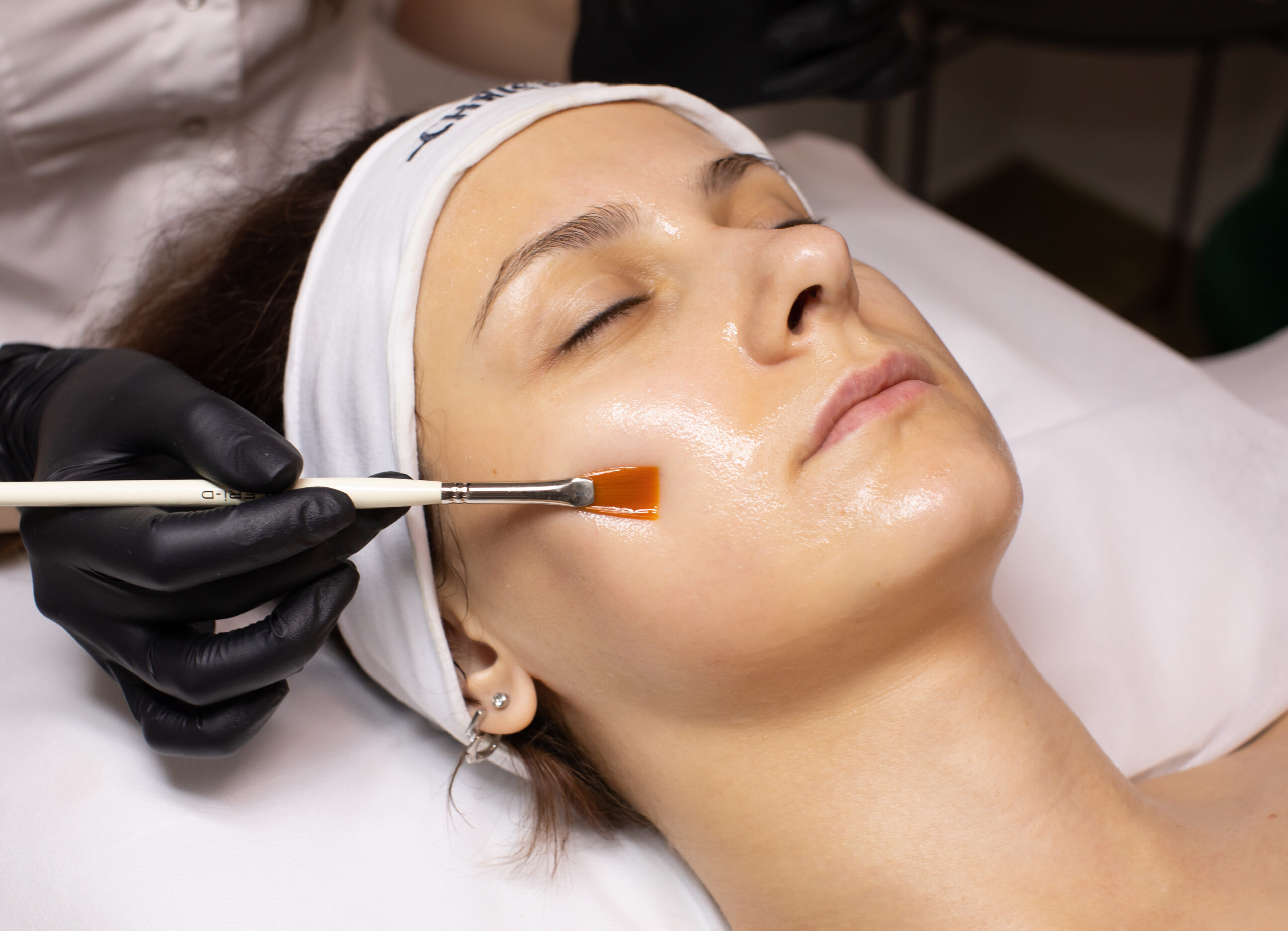chemical peel treatment in Bangalore
A chemical peel is a cosmetic treatment that enhances the appearance and texture of the skin by applying a chemical solution to exfoliate and remove the outer layers. The treatment encourages skin regeneration, resulting in smoother and more even skin.
Types of Chemical Peels
Superficial Peels:
- Description: Mild acids, such as glycolic or salicylic acid, are used to gently exfoliate the outermost layer of the skin.
- Benefits: Improves minor skin issues, smooths texture, and boosts radiance.
- Suitable for: Mild acne, rough skin texture, minor pigmentation.
Medium Peels:
- Description: Stronger acids, like trichloroacetic acid (TCA), penetrate deeper into the skin.
- Benefits: Addresses moderate concerns, such as fine lines, sun damage, and acne scars.
- Suitable for: Fine lines, moderate acne scars, sun damage.
Deep Peels:
- Description: Potent acids, like phenol, are used to treat more severe skin issues by penetrating the deeper layers.
- Benefits: Improves deep wrinkles, sun damage, and severe skin imperfections.
- Suitable for: Severe wrinkles, deep scars, significant sun damage.
- Recovery Time: Longer downtime is required.
Indications for Chemical Peels
Acne:
- How It Helps: Removes dead skin cells, unclogs pores, reduces inflammation, and helps control acne bacteria.
- Suitable for: Individuals with mild to moderate acne.
Hyperpigmentation:
- How It Helps: Treats uneven skin tone, melasma, sunspots, and age spots by exfoliating pigmented areas.
- Suitable for: People with localized or widespread hyperpigmentation.
Wrinkles and Fine Lines:
- How It Helps: Smooths fine lines and wrinkles by stimulating collagen production and exfoliating damaged layers.
- Suitable for: Individuals with early signs of aging.
Uneven Skin Texture:
- How It Helps: Promotes cell turnover to improve rough or bumpy skin texture, creating a more radiant complexion.
- Suitable for: People with dull or uneven skin.
Sun Damage:
- How It Helps: Reduces dark spots and uneven tone caused by UV damage, encouraging healthy skin growth.
- Suitable for: Individuals with noticeable sun damage.
Contraindications for Chemical Peels
Active Skin Infections:
- Avoid if: You have active infections like herpes simplex or bacterial infections to prevent irritation or worsening.
Recent Skin Procedures:
- Avoid if: You’ve recently had laser therapy or microdermabrasion. Allow your skin to fully recover before a chemical peel.
Pregnancy or Breastfeeding:
- Consult a Doctor: Chemical peels may pose risks during pregnancy or breastfeeding, so seek medical advice before treatment.
Severe Skin Conditions:
- Avoid if: You have eczema, psoriasis, or severe rosacea, as these conditions may require special care.
Sunburned Skin:
- Avoid if: Your skin is sunburned or overly sensitive, as chemical peels can further damage and irritate it.
Allergies to Peel Ingredients:
- Ensure: You are not allergic to any of the acids or chemicals used in the peel solution.
Precautions
- Patch Test: A small patch test may be performed to check for skin reactions before the full treatment.
- Sun Protection: Use broad-spectrum sunscreen to protect newly treated skin from UV damage.
- Consultation: Always consult with a licensed dermatologist to choose the most suitable chemical peel for your skin type and concerns.
Post-Treatment Care
- Avoid Sun Exposure: Protect your skin by using sunscreen with high SPF and avoiding direct sunlight to prevent pigmentation issues.
- Hydrate: Use gentle moisturizers to keep the skin hydrated and aid the healing process.
- Avoid Harsh Products: Stay away from exfoliants, alcohol-based products, or any harsh skincare items until your skin fully heals.
Chemical peels offer excellent results when chosen and applied correctly, improving various skin concerns and restoring a radiant complexion.



